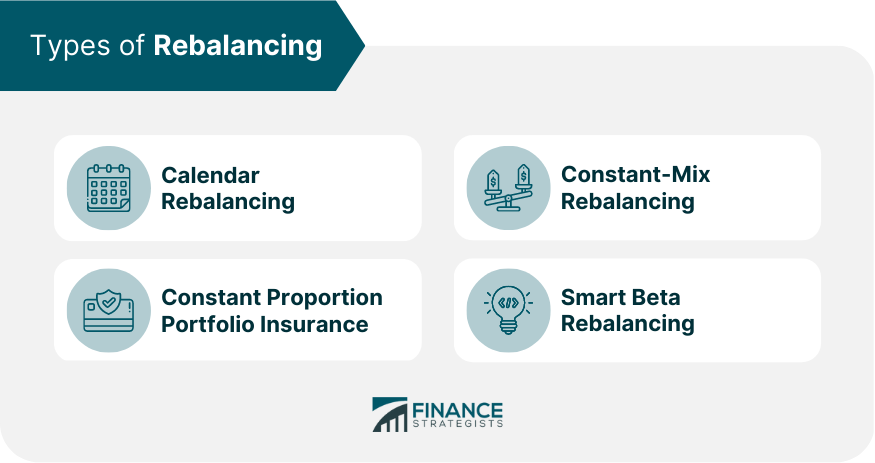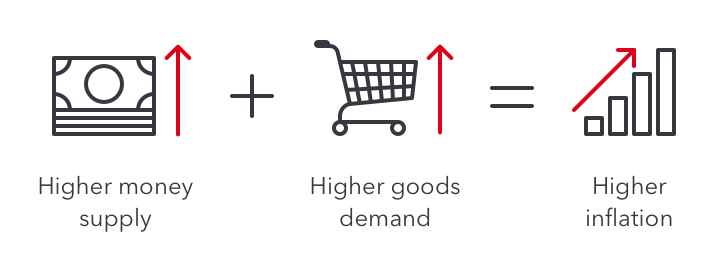Annuity Protection From Creditors| Asset Protection Strategies. Are you looking to ensure your retirement savings are protected from creditors? Many people worry that their hard-earned money will be taken away in the event of a lawsuit or bankruptcy. The good news is that annuity protection from creditors can help protect your nest egg and give you peace of mind for the future.
In this article, we’ll take an in-depth look at how annuities offer protection from creditors, what types of annuities there are, and other useful information about creditor protection. We’ll also discuss whether it’s worth investing in an annuity solely for creditor protection purposes.
If you’re concerned about keeping your retirement funds safe from potential legal issues, then read on to learn more about the benefits of annuity protection against creditors!
Definition of an annuity
An annuity is an insurance contract that provides a series of payments over time. It can be used to generate income for retirement or provide protection from creditors. Annuities are designed to give individuals the security and assurance of receiving regular payments throughout their lifetime, either as a lump sum or ongoing periodic payouts.
At its core, an annuity is a contract between a person and an insurance company. In exchange for the premiums paid by the person, the insurance company agrees to make certain payments at certain times. The size and length of these payments depend on the type of annuity you buy, but if you invest your money right, they all offer a guaranteed stream of income.
In addition to providing financial security during retirement years, annuities offer peace of mind knowing assets will remain protected against creditors should unexpected debts arise later in life. This makes them attractive investments for those looking to secure their future while ensuring any funds saved won’t be taken away if faced with legal action due to debt collection efforts.
Types of Annuities
When it comes to annuities, there are a variety of options available. These include fixed annuities, variable annuities, immediate annuities, deferred annuities, and index annuities. Each type has its own unique characteristics that should be taken into consideration before deciding which option best fits your needs:
* Fixed Annuity: A fixed annuity provides guaranteed lifetime income with no risk of loss due to market fluctuations.
* Variable Annuity: A variable annuity offers the potential for higher returns but also carries greater risks since investments can go up or down depending on the performance of underlying assets.
* Immediate Annuity: An immediate annuity allows you to receive payments immediately after making an initial payment or series of payments. This type is often used by those who need a steady income in retirement.
* Deferred Annuity: With this type, money is invested and left alone until needed later in life. The investor can choose how long they would like to defer their earnings and when they want to begin receiving them as income.
* Index Annuity: Also known as “fixed index” or “equity index annuities,” these offer protection from market losses while providing access to some of the stock market’s gains over time through interest credits linked to various indexes such as Standard & Poor’s 500 (S&P500) or Dow Jones Industrial Average (DJIA).
No matter what type of annuity you decide upon, understanding creditor protection laws is important so that you know exactly how much coverage your investment will provide against creditors if something were ever to happen. Understanding what types of investments are protected from creditors varies from state-to-state, so make sure you do your research ahead of time! From here, we’ll look at what sort of creditor protection laws exist related to owning an annuity.
Creditor Protection Laws
Creditor protection laws are like an invisible shield, protecting individuals from having their assets seized by creditors. These laws protect consumers and businesses from harassment or lawsuits due to debt collection attempts. Depending on the state, creditor protection laws can vary greatly in regards to what is protected and how it may be protected.
One of the ways creditors have tried to get around these laws is through exemptions for annuities. Annuity contracts often provide a certain level of security against creditors; however, this varies depending on which state you live in.
Some states have specific creditor protection exemptions that apply only to annuities, while others do not offer any special protections at all. It is important to understand your state’s specific creditor protection laws when considering the purchase of an annuity as part of your retirement planning strategy.
When looking into creditor protection law exemptions for annuities, one should also consider other factors, such as whether or not the funds used to purchase the annuity are held in trust accounts or if they are subject to attachment by creditors.
Additionally, some states allow insurance companies offering annuities to add protective provisions that further safeguard the asset from being taken by creditors claims. Understanding your options will help ensure you make informed decisions about protecting yourself financially with an annuity product.
In order for individuals to take full advantage of their rights under creditor protection laws, it is vital that they become familiar with the particular rules governing each individual state’s regulations regarding these types of investments and the protections available for them specifically related to annuities. This knowledge allows people to make more informed financial decisions concerning their future security and well-being.
Exemptions for Annuities
Annuities are financial products that provide a source of income, and they can be used to protect one’s assets from creditors. To do this, it is important to understand the annuity exemptions that shield an individual’s money or property from creditor claims. These include the asset protection exemption, which allows individuals to keep certain types of investments safe from creditors, and the tax exemption annuity, which shields retirement savings from taxation by state and federal governments.
In addition, there is also the creditor protection exemption for annuities purchased with after-tax dollars. This exemption prevents those funds from being seized by creditors in the event of bankruptcy or other legal proceedings. Furthermore, many states have adopted what is known as an “annuity shield” law that further protects annuitants from having their benefits taken away due to creditor claims.
These protections allow people to use annuities as a secure way to protect their assets and retirement savings from potential losses caused by unforeseen circumstances such as bankruptcy or litigation. Moving on, let us consider some of the additional benefits of an annuity when it comes to protecting oneself against creditors.

Benefits Of An Annuity To Protect From Creditors
An annuity is a powerful tool to protect financial assets from creditors. It can be an absolute oasis of security and safety in the midst of turbulent times, providing unparalleled asset protection and peace of mind.
The benefits of using an annuity for creditor protection are numerous. For one thing, it provides complete asset security by safeguarding funds against bankruptcy or other legal claims by creditors. Furthermore, because annuities are often tax-advantaged investments, they may also provide further savings on tax implications when used as a form of creditor protection.
When utilizing an annuity to guard against creditors, individuals gain more than just comfort; they also gain substantial financial freedom. By shielding their assets with this type of investment vehicle, people have greater control over their future without fear that their hard-earned money will be taken away due to unexpected debt or lawsuit settlements.
Moving forward, it’s important to understand the limitations on creditor protection for annuities so that you can make informed decisions about your financial future.
Limitations on creditor protection for annuities
When it comes to annuity protection from creditors, there are certain limitations that must be taken into consideration. These limitations can vary depending on the type of annuity in question and other factors, such as state law. For example, some states may allow for more comprehensive creditor protection than others when it comes to annuities. Additionally, not all creditors will have the same level of access when it comes to collecting assets held in an annuity.
In general, there is a limit on how much money is available for creditor protection through an annuity contract. This means that if you own an annuity with a value above this threshold, your creditors may be able to access funds beyond what is protected by the policy itself. It’s important to understand these limits so you know exactly what rights you have in regards to protecting your assets from potential creditors.
Annuity Protection From Creditors| Asset Protection Strategies
Overall, while having an annuity can provide some level of protection from creditors, there are still certain limitations that should be taken into account when making decisions about how best to protect your financial interests against possible claims from third parties. The next section discusses how state law impacts creditor protection for those who own an annuity.
How State Law Impacts Creditor Protection
As the saying goes, ‘the devil is in the details’, and this certainly holds true when it comes to annuity protection from creditors. Each state sets its own laws regarding creditor protection for annuities, which can have a significant impact on how much of an individual’s assets are protected. In some states, individuals may be able to protect their entire annuity, while other states offer less generous protections.
When determining whether or not an individual’s annuity will be fully protected, one must look at both federal law and state law. Federal law offers certain exemptions that vary by state but generally provide basic protections. On top of these federal exemptions, each state has its own set of exemptions that govern what types of assets are exempt from being seized by creditors. These state-specific exemptions can dictate whether or not an individual’s full annuity is safe from creditors.
For example, if a particular type of asset is covered by a state exemption, then the person who owns it would likely be able to retain full control over that asset even if they become insolvent.
It’s important to note that many states also require individuals to proactively take steps such as creating irrevocable trusts in order to ensure that their assets remain outside the reach of creditors. This means that even with a strong understanding of applicable legal provisions, individuals should still seek independent advice before taking any action related to protecting their assets from potential creditors.
Understanding how state law impacts creditor protection for annuities will help individuals make informed decisions about preserving their financial security and safeguarding their future wealth. With this knowledge in hand, individuals can move forward confidently towards establishing irrevocable trusts and asset protection plans tailored specifically to meet their needs.
Irrevocable trusts and asset protection
An irrevocable trust is a powerful estate planning tool that can be used to protect assets from creditors. This type of trust provides the settlor with long-term financial security and asset protection for his or her beneficiaries.
An irrevocable trust allows funds, property, and other assets to be transferred out of the individual’s name into an entity owned by someone else, which makes it much more difficult for creditors to access those assets. The key benefit of setting up an irrevocable trust is that once it is in motion, there are no legal mechanisms available to change or revoke the agreement without court approval.
The primary purpose of using an irrevocable trust as part of one’s estate plan is to ensure financial security for loved ones after death. Assets placed in an irrevocable trust cannot be taken away by creditors; instead, they remain protected until they are distributed according to the terms specified in the trust document upon the grantor’s passing. Additionally, if done correctly, these trusts can reduce taxes owed on certain assets while protecting them from creditors at the same time.
For individuals looking to secure their finances over the long term and create a sound estate plan, creating an irrevocable trust may be worth exploring further. Along with providing valuable asset protection benefits, such trusts also provide peace of mind knowing that one’s hard-earned wealth will stay safe even after death.
With careful consideration given to how these trusts work within existing laws, individuals have many options when it comes to safeguarding their future financial security. Moving forward, we’ll look at the homestead exemption and its role in asset protection.

Homestead Exemption and Asset Protection
Similar to an irrevocable trust, the homestead exemption is another way to protect assets from creditors. It’s like a shield around one’s home and property, providing protection from seizure or forced sale if the owner encounters financial difficulty. Homestead exemption laws vary by state but generally provide that a certain amount of equity in real estate can be exempt from creditors’ claims. To qualify for this type of asset protection, homeowners must meet specific criteria, including size limitations, tax requirements, and residency rules.
In terms of taxation, most states offer significant benefits, such as not having to pay taxes on any appreciation up to the value limit set forth under their law. This makes the homestead exemption particularly attractive when it comes to protecting large amounts of equity in real estate investments.
Furthermore, some jurisdictions allow individuals who do not own a house to take advantage of these exemptions; they just have to meet the necessary qualifications established by the applicable state law.
Ultimately, the homestead exemption provides valuable asset protection against creditors while also offering substantial tax savings, depending on where the homeowner resides. Moving forward, we’ll explore bankruptcy and asset protection options available for those facing financial hardship.
Bankruptcy and Asset Protection
Bankruptcy is a legal process by which someone may be relieved of their debt obligations. When filing for bankruptcy, certain assets are exempt from creditors and can’t be taken away. Asset protection involves taking steps to protect your property from potential creditors before you file for bankruptcy. This includes transferring assets into trusts or other entities that will shield them from creditors.
Exemptions are also an important part of asset protection when filing for bankruptcy, as they determine which assets cannot be taken to pay off debtors. Depending on the type of bankruptcy filed, different exemptions apply, and it’s necessary to understand these in order to protect one’s assets properly. Additionally, there are various strategies that individuals can use depending on the specific circumstances, such as titling assets correctly and establishing spendthrift trusts.
Asset protection planning must happen well in advance when preparing for a bankruptcy filing in order to ensure maximum benefit and minimize any issues with creditors down the road. It’s important to consider all options available and consult with a professional who specializes in this area if needed. Transitioning smoothly into the next section about qualified domestic relations orders (QDRO), a proper understanding of QDROs is essential when dealing with annuities during divorce proceedings.
Qualified Domestic Relations Orders (Qdro)
It is estimated that over 876,000 couples filed for divorce in the United States during 2019. During a marital dissolution, qualified domestic relations orders (QDROs) are used to divide certain assets between spouses or other dependent parties. QDROs are court-approved documents that detail how certain marital assets should be divided upon the dissolution of a marriage.
Annuity Protection From Creditors| Asset Protection Strategies
These documents include instructions for employers and financial institutions on how to split pension benefits, retirement accounts, annuities, and other similar investments among divorcing partners.
In order to ensure accurate asset division through qualified orders, it is important to have all relevant information about the couple’s finances at hand before filing the document with the court. This can include salary statements, tax returns, and any bank account information that might be affected by the separation agreement. It is also important to take into consideration any applicable fee associated with splitting these types of assets when drafting up a QDRO.
The use of QDROs provides an efficient way to protect both parties involved in a divorce from creditors who may try to claim their portion of shared assets after they have been divided between former spouses. By following this legal process for dividing property rights prior to distribution, each party will only be responsible for his or her own share instead of being jointly liable for any debts incurred during the marriage.
This type of protection from creditors gives couples greater peace of mind when considering dissolving their marriages, so that each person has some certainty regarding what he or she will receive post-divorce. The next section focuses on transfer on death (TOD) and payable on death (POD) accounts as another tool available for asset protection during times of transition, such as marriage breakdowns or deaths in the family.
Transfer on Death (Tod) and Payable on Death (Pod) Accounts
The two types of accounts have some differences:
Transfer on Death (TOD) Accounts
TOD accounts can be used with stocks, bonds, mutual funds, other investments, and bank savings or checking accounts.
The designated beneficiary has no access to the account while the owner is alive; they only become eligible after the owner’s death.
Payable on Death (POD) Accounts
POD accounts are generally associated with money held in banks such as CDs and checking and savings accounts.
The designated beneficiary does not gain any rights until after the account holder passes away; however, they may have limited access if named as a joint tenant by right of survivorship.
TOD and POD accounts are effective ways to protect assets from creditors. These designations allow the account holder to designate a beneficiary or beneficiaries who will receive the funds upon their death, bypassing probate court and providing asset protection for heirs.
Both TOD and POD accounts provide excellent asset protection for heirs since these designations avoid going through probate court, which often results in an unequal distribution of assets.

Unequal Distribution Of Assets
Life can be unpredictable, and it is not uncommon for people to fall on hard times. When asset ownership and wealth transfer are not evenly distributed, this can create an unequal legacy that leaves certain assets vulnerable to creditors. Asset splitting is one way of protecting annuity holders from having their assets seized in the event of financial hardship. By transferring some of the assets into separate accounts or trust funds, individuals can ensure a more equal distribution and protect their resources in the long run.
This strategy may also prove useful when creating offshore asset protection trusts as a means of shielding possessions from creditors who wish to seize them in order to satisfy debts.
Offshore trusts provide another layer of security by allowing beneficiaries to keep their assets out of reach in jurisdictions with strong creditor protection laws. This prevents creditors from accessing those same holdings even if they have legal rights over other properties located within the same jurisdiction.
Asset splitting and offshore trusts offer ways for annuity holders to secure their investments against unexpected losses due to unforeseen circumstances such as bankruptcy or insolvency proceedings. While these strategies cannot guarantee complete safety, they do provide additional layers of protection for individuals looking to safeguard their future finances. As we move forward, it will be important for annuity owners to explore all available options so they can determine which approach best fits their particular needs and goals.
Offshore Asset Protection Trusts
Having discussed the unequal distribution of assets, this section will explore offshore asset protection trusts as a possible solution for protecting annuities from creditors. An offshore asset protection trust is an agreement established in one country by citizens or residents of another country that provides legal and financial privacy, with the main purpose being to protect assets from lawsuits and other claims.
These trusts are often used when individuals have sizable amounts of money they wish to protect, such as those who own an annuity. It’s important to note that these types of trusts may not be recognized in all jurisdictions, so it’s important to consult a lawyer experienced in international law before setting up any type of trust. Additionally, there are usually tax implications associated with offshore asset protection trusts, which should also be taken into consideration.
Annuity Protection From Creditors| Asset Protection Strategies
For someone looking to protect their annuity from creditors, an offshore asset protection trust could prove beneficial if done correctly according to the laws set forth in each jurisdiction involved. However, before making any decisions regarding a trust, it’s best to research the relevant tax implications both domestically and abroad. Doing so can help ensure that proper measures are taken and provide more clarity about how funds held within certain countries might be affected.
Relevant Tax Implications
When an annuity is used to protect assets from creditors, it’s important to consider the relevant tax implications. Any income received through the annuity will be considered taxable income according to IRS regulations. Additionally, withdrawals may be subject to taxation and early withdrawal penalties, depending on the terms of the annuity contract. It’s also important to note that any gifts made by using an annuity could have gift tax implications as well.
Estate taxes must also be taken into consideration when protecting one’s assets with an annuity. In order to avoid or minimize estate taxes, a proper gifting strategy needs to be implemented. The amount gifted should not exceed any thresholds set forth by current IRS regulations in order for this strategy to remain compliant with federal guidelines.
In short, before deciding whether or not protection from creditors via an annuity makes sense financially, individuals should consult with a professional financial advisor who can help evaluate their present situation and provide guidance on how best to structure the arrangement for optimal benefit while remaining within applicable legal boundaries.
Frequently Asked Questions
Are annuities a guaranteed way to protect assets from creditors?
When it comes to asset protection, many people are considering whether annuities can guarantee their assets against creditors. Annuities offer a unique form of security in that they allow individuals to save money on a tax-deferred basis and provide guaranteed income over the course of retirement. But do they also protect your assets from creditors?
The answer depends on the type of annuity you purchase and where you live. Generally speaking, qualified annuities (those held within an IRA or 401(k)) are protected from creditors under federal law as long as certain conditions are met. However, when it comes to non-qualified annuities—those purchased outside of a retirement plan—this is not always the case. Depending on state laws and other factors, these types of annuities may be subject to seizure by creditors if there is a legal judgment against you.
It’s important to understand your situation before investing in an annuity for creditor protection purposes because there isn’t a one-size-fits-all solution here. Different states have different rules regarding how much protection is offered to holders of non-qualified annuities, so it’s critical that you research what applies in your area before making any decisions about which product might best suit your needs.
Ultimately, doing adequate due diligence prior to signing up for any kind of annuity will help ensure that your investment provides maximum security for your assets should unforeseen events occur down the road.
What Is The Difference Between Homestead Exemption And Asset Protection?
When it comes to protecting your assets from creditors, you may have heard of the homestead exemption and asset protection. But what is the difference between them? In this article, we will discuss the key distinctions between these two methods so that you can make an informed decision about which one is right for you.
The homestead exemption protects a certain amount of equity in your primary residence or land from being taken by creditors in bankruptcy proceedings. This means if someone sues you, they cannot seize any part of your home beyond the value allowed under the homestead law. This type of protection varies depending on where you live, but typically ranges anywhere from $25,000 to $100,000 worth of equity.
Asset protection is another way to shield yourself from creditors. It involves transferring ownership of your assets to different entities, such as trusts or LLCs (limited liability companies). These are designed to legally separate oneself and their property, thus making it more difficult for creditors to get access to those assets should legal action be taken against them. Asset protection also usually requires some upfront costs associated with setting up these structures.
It’s important to understand how each strategy works before deciding which one is best for you. If a large portion of your net worth lies in real estate or other tangible property like cars, then homestead exemption might be the better option since there isn’t any initial cost needed to set it up. However, if most of your wealth consists mainly of investments or liquid cash reserves, then asset protection might provide more robust coverage at a slightly higher price tag.

How Do Qualified Domestic Relations Orders (Qdro) Protect Assets?
Qualified Domestic Relations Orders (QDROs) are a powerful tool used to protect assets from creditors. QDROs can provide annuity protection, asset protection, and creditor protection for individuals in domestic relations situations. Typically, when an individual is separated or divorced, the court will issue a QDRO that orders one party to pay all of their financial obligations owed to the other partner. This order ensures that any assets held by either partner remain safe from creditors during the divorce proceedings.
QDROs can also be used as a way to protect annuities from creditors. When a person holds an annuity, they typically have limited options for protecting their money from creditors. A QDRO can be used to ensure that if the holder of an annuity becomes insolvent or bankrupt, their funds won’t be seized by creditors. Additionally, it provides security against any potential judgments obtained against them due to debtors attempting to collect on past debts.
When looking at asset protection strategies, QDROs offer significant benefits over traditional methods such as homestead exemptions. Homestead exemptions only apply to certain types of property and may not cover all forms of assets held by the debtor. On the other hand, a QDRO applies across all kinds of assets, including real estate, stocks and bonds, cars, and even annuities, which makes it more comprehensive than most forms of asset protection available today.
Overall, Qualified Domestic Relations Orders are an effective means of providing asset protection for those involved in domestic relationships as well as those holding annuities who want extra assurance that their funds will remain secure in case of personal bankruptcy or insolvency.
Is it possible to move assets offshore to protect them from creditors?
Yes, it is possible to move assets offshore in order to protect them from creditors, though if you’re considering such a course of action, perhaps you should consult an attorney first. But for those looking for asset protection and creditor protection, moving money offshore into foreign bank accounts may be the answer.
Offshore accounts are often seen as mysterious entities that only millionaires have access to; however, anyone with disposable income can open one and reap the benefits of lower taxes, investment diversification, and increased privacy. And while there are certainly risks associated with transferring funds overseas and investing in unknown markets, there are also advantages when it comes to protecting your assets from creditors.
For instance, some countries provide very strong legal protections that make it difficult or impossible for creditors to access your offshore account(s). Furthermore, depending on where you choose to transfer your funds (such as a non-extradition country), even if they do manage to gain access, they may not be able to take full control of the money.
That being said, laws related to overseas investments vary widely by location, so doing research ahead of time is essential!
By keeping informed about local regulations and seeking advice from qualified professionals before making any decisions, individuals can ensure their money is safe no matter what happens back home. Although there’s always risk involved when dealing with foreign jurisdictions and financial institutions, careful planning upfront can help keep assets secure long-term.
Do Transfer on Death (ToD) and Payable on Death (Pod) accounts provide creditor protection?
Transfer on death (TOD) and payable on death (POD) accounts are often considered when looking for ways to protect assets from creditors.
It is worth noting that TOD and POD accounts can provide some measure of asset protection, but only if the beneficiary has no debt themselves. If a beneficiary does have outstanding debts, then any money left in the account upon their death may be subject to seizure by creditors before going to them. Therefore, it is important to ensure that the chosen beneficiaries do not have any existing debt liabilities.
Furthermore, TOD and POD accounts have different rules depending on which state they are based in. It is essential to research what type of protection is offered in your particular jurisdiction so you know exactly how well protected your assets will be should something happen to the intended recipient. Knowing this information beforehand can help make sure that your assets remain safe even after a transfer or payment occurs due to death.
Ultimately, while TOD and POD accounts do offer some degree of asset protection against creditors, it is still wise to consider other options as part of an overall estate plan before deciding which one best suits your needs.
Conclusion
In conclusion, there are a few ways to protect assets from creditors. Annuities can be an effective form of protection if they meet certain requirements. Homestead exemption and Qualified Domestic Relations Orders (QDRO) offer more direct asset protection, while moving assets offshore or using Transfer on Death or Payable on Death accounts may also provide some security in particular cases.
In the end, it’s important to remember that no one strategy is foolproof—like investing itself, protecting your assets requires careful consideration and research. To use a metaphor, you wouldn’t jump into a pool without first testing the water temperature; similarly, don’t rush into asset protection strategies without making sure you understand all of your options first. That way, I’m confident you’ll make the right decision for yourself and your loved ones.













Leave a Reply